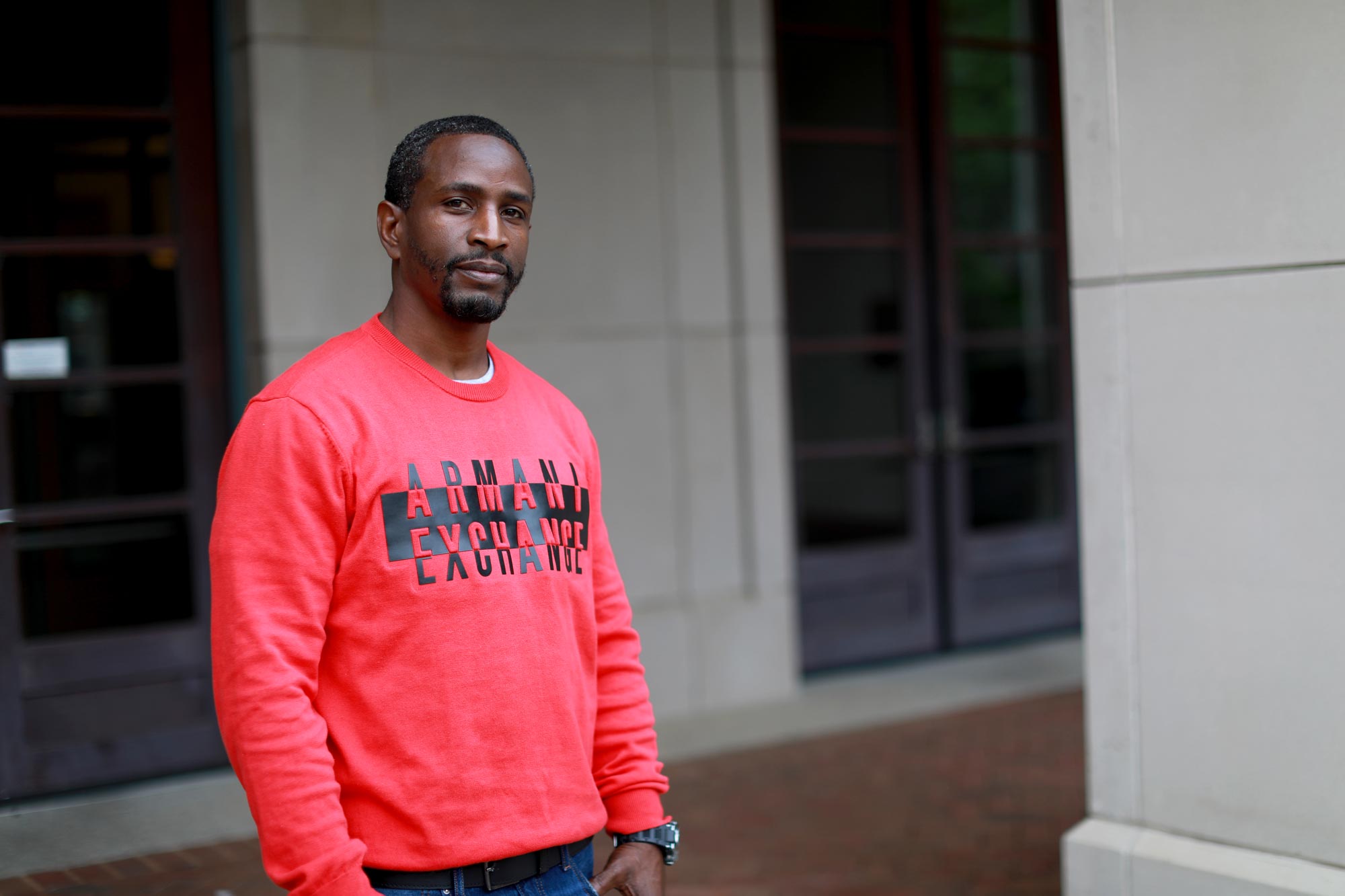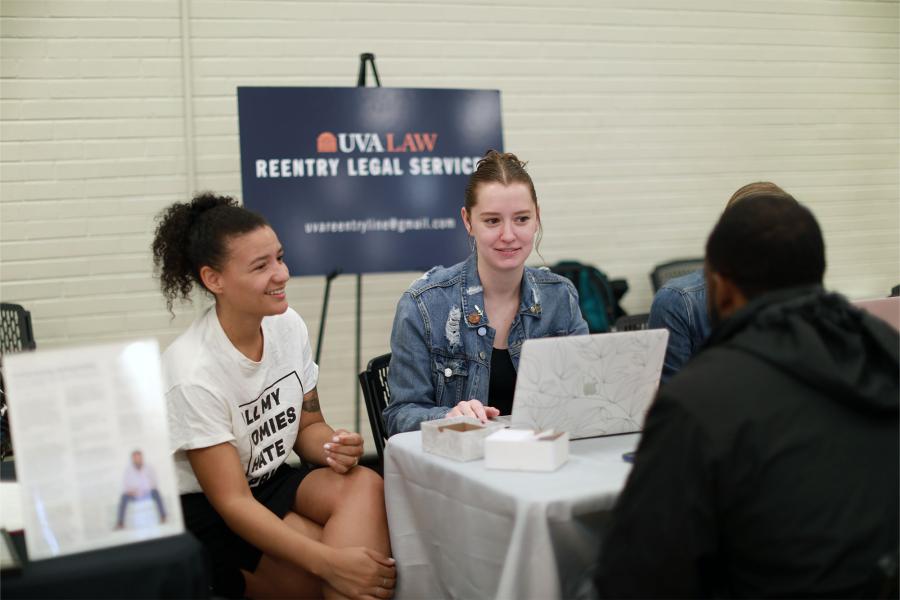Gilbert Merritt III spent two decades in a jail cell for a murder he did not commit. Now, Virginia will provide compensation for the many years he lost and make it easier for him and others who were convicted of crimes due to malicious actions by public employees to receive additional funds from the state.
With help from the University of Virginia School of Law’s Innocence Project, Merritt’s conviction was vacated in July 2022. However, his exoneration did not immediately entitle him to financial redress because state law requires the enactment of specific legislation to compensate a wrongfully convicted individual.
Gov. Glenn Youngkin recently approved HB 1780, introduced by Del. Rip Sullivan, a 1987 Law School graduate, to do just that for Merritt. In addition, Youngkin signed into law HB 1914, also sponsored by Sullivan, which removes a barrier for those who were falsely convicted because of intentionally misleading acts by public safety officials or others on the government payroll – as Merritt was – to receive additional compensation.

Gilbert Merritt III, standing in front of UVA’s School of Law, was exonerated of murder after spending two decades in jail and will now receive compensation from the Commonwealth of Virginia. (Photos by Julia Davis)
Both bills – as well as separate legislation on behalf of Marvin Grimm, a wrongfully convicted man who, because of misconduct by authorities, spent nearly 45 years in prison for murder and sexual assault – passed unanimously in the General Assembly and represent the latest efforts by the commonwealth to pay debts that can never truly be repaid.
“We’ve worked on broad compensation reform for the wrongfully convicted with Del. Sullivan over the course of the last several years,” said professor Juliet Hatchett, a director of the Law School’s Innocence Project and a 2015 UVA Law graduate. “In that time, Virginia has made great improvements. This year, HB 1914 represents a huge step forward that would help establish Virginia at the forefront of the nation when it comes to compensating people who were wrongfully convicted because of intentional bad acts by public officials, such as corrupt law enforcement officers.”
No Physical Evidence
Merritt was given a 30-year prison sentence in November 2001 following his conviction for a murder outside a Norfolk convenience store, though there was no physical evidence tying him to the crime and despite his alibi.
He was another victim of Norfolk Police Detective Robert Glenn Ford, who had been involved in other cases the UVA Law Innocence Project had taken on. In Merritt’s case, Ford convinced a woman to give false testimony, which she eventually retracted.
Ford, who was also at the center of the infamous “Norfolk Four” case involving sailors wrongfully convicted of rape and murder, was eventually found guilty on federal charges that included extortion, conspiracy to commit extortion and making false statements.
Like Merritt, Grimm’s life was also devastated by bad actors in law enforcement. Grimm was convicted for the 1975 murder and sexual assault of a 3-year-old boy in Richmond and was not paroled until 2020. While on parole, Grimm was required to register as a sex offender. Last year, the Virginia Court of Appeals fully exonerated him of the crime.
Grimm was convicted after police pressured him to confess with tactics including keeping him awake for nearly 24 hours, supplying him with details of the crime and threatening him with the death penalty – even though the death penalty was not an option for the crime charged.
Many years later, modern DNA testing invalidated the physical evidence used to corroborate the coerced confession, including eight hairs found in Grimm’s car and apartment that officials had falsely attributed to the boy.
Additionally, blood-type testing that would have proven Grimm’s innocence was mischaracterized during a hearing at the time.










